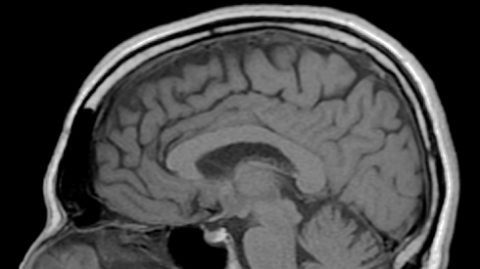Pseudobulbar Palsy Life Expectancy, Causes, Treatment | Pseudobulbar Palsy vs Bulbar Palsy
Definition:
Pseudobulbar palsy, commonly referred to as involuntary emotional expression disorder, is a syndrome that impairs facial muscle control (including your jaw). You may also experience issues with your throat and mouth muscles, including your tongue. It may significantly affect how you live your life. Furthermore, it may impair your capacity for speaking, swallowing, and eating.
In addition to these symptoms, you may encounter fits of uncontrollable sobbing or inappropriate laughter. This condition is often referred to as "emotional incontinence" or "pseudobulbar affect."
Patients recovering from strokes and those suffering from neurological conditions like ALS or multiple sclerosis may experience pseudobulbar palsy (MS). PBA can elicit a startling range of feelings, with tears and laughter lasting for many minutes. For instance, you might burst out laughing uncontrollably in reaction to a somewhat humorous remark. Or you may find humor or sadness in circumstances that others don't find amusing or sad.

Life Expectancy:
The patient's underlying condition is the most important factor in determining the prognosis. Numerous PBA patients also suffer from long-term neurological conditions like Parkinson's disease, ALS, or MS. The purpose of the treatment is to enhance the overall quality of life of these people by making their emotional outbursts less intense and less frequent. If the disease is getting worse quickly, like with ALS, the patient has a shorter life expectancy (2–5 years from the start of symptoms) than those with a disease that can be treated with medicine (like MS) or whose condition was caused by a stroke.
Causes:
Pseudobulbar affect (PBA) is a condition that can have a variety of causes, but it is almost always connected to neurological disorders or diseases that result in harm or damage to the brain. The exact reasons behind PBA are not totally understood. PBA manifests as a loss or absence of voluntary control over emotional reactions.
The loss of inhibitory or regulatory control over emotional expression presumably results from a dysfunction in several brain regions along a cerebro-ponto-cerebellar axis. The cerebellum is a component of this system and is crucial in regulating or controlling emotional reactions to make sure they are acceptable for the social context. A loss or lack of control over how one expresses emotion may result from a disruption of the neuronal (nerve) circuits that connect specific brain regions to the cerebellum.
Treatment:
It is recommended that neurologists must be consulted for each and every patient. If dysphagia is apparent or if symptoms are progressing quickly, patients will need to be admitted. The treatment will focus on the root cause.
The use of TCA, SSRIs, or a novel technique that makes use of dextromethorphan and quinidine sulfate are all potential pharmacological therapies that can be used to treat pseudobulbar affect. The FDA has authorized Nuedexta as a treatment for pseudobulbar affect. Dextromethorphan reduces glutamatergic transmission in the brainstem and cerebellum regions which are thought to be associated with pseudobulbar symptoms. It also functions as a sigma ligand by interacting with the sigma-1 receptors that control emotional motor expression.
Pseudobulbar Palsy vs Bulbar Palsy
Bulbar palsy occurs when cranial nerves IX, X, or XII experience damage to their lower motor neurons. Damage of the upper motor neurons in the cranial nerves IX, X, and XII causes pseudobulbar palsy. In pseudobulbar palsy, the afflicted muscles do not exhibit atrophy or fasciculation, unlike in bulbar palsy caused by lower motor neuron degeneration.
 Reviewed by Simon Albert
on
October 07, 2022
Rating:
Reviewed by Simon Albert
on
October 07, 2022
Rating:











